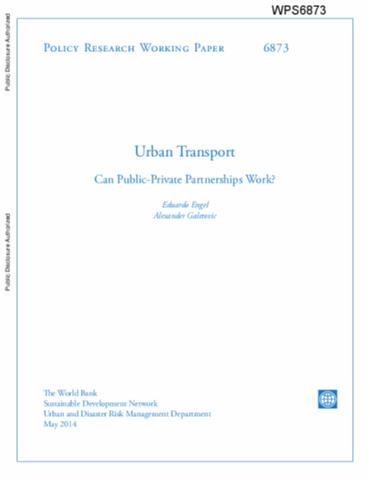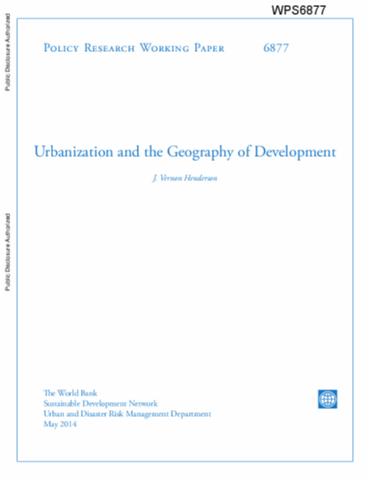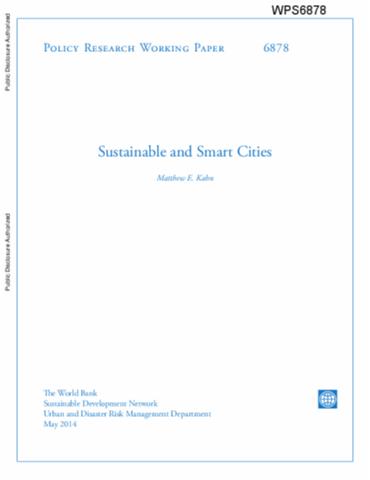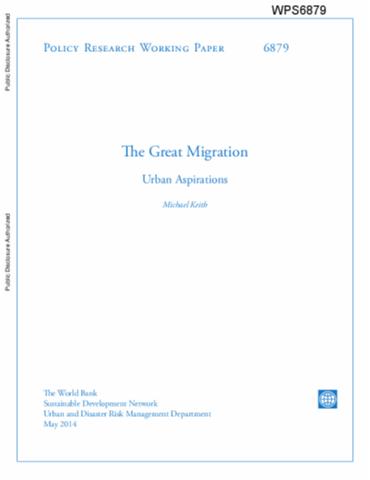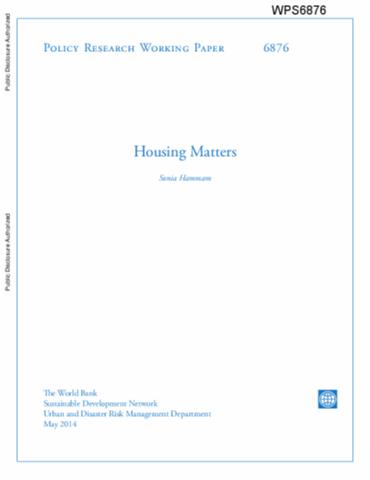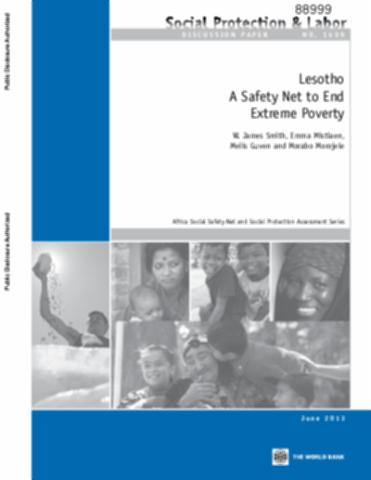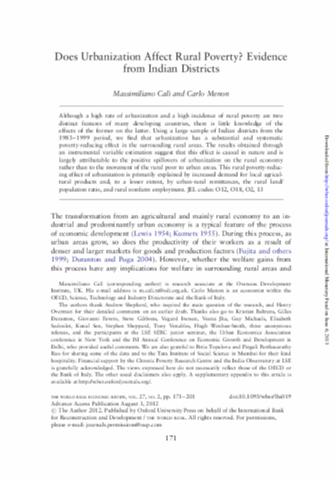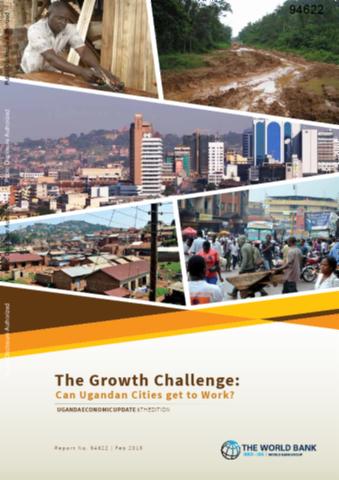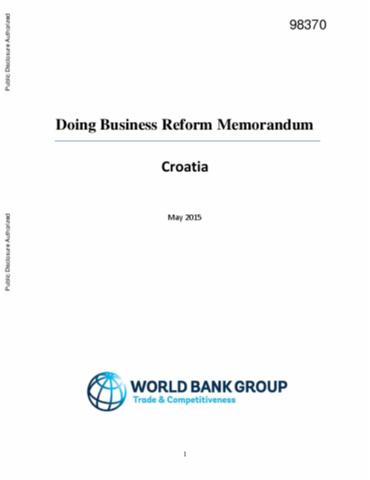
Topics and Regions
Details
Location
Contributions
Displaying 621 - 630 of 630Urban Transport : Can Public-Private Partnerships Work?
Cities exist, grow, and prosper because they take advantage of scale economies and specialization wrought by agglomeration. But output growth inevitably stresses transport infrastructure because production requires space and mobility. To prevent congestion from crowding out agglomeration benefits and to expand the supply of urban land, cities must invest in transport infrastructure. Yet balancing the growing demand for infrastructure with its supply is often difficult. In particular, many cities lack the funding to maintain and expand streets and urban highways.
Urbanization and the Geography of Development
This paper focuses on three interrelated questions on urbanization and the geography of development. First, although we herald cities with their industrial bases as "engines of growth," does industrialization in fact drive urbanization? While such relationships appear in the data, the process is not straightforward. Among developing countries, changes in income or industrialization correlate only weakly with changes in urbanization. This suggests that policy and institutional factors may also influence the urbanization process.
Sustainable and Smart Cities
This paper explores the challenges and opportunities that government officials face in designing coherent 'rules of the game' for achieving urban sustainability during times of growth. Sustainability is judged by three criteria. The first involves elements of day-to-day quality of life, such as having clean air and water and green space. The provision of these public goods has direct effects on the urban public's health and productivity. The second focuses on the city's greenhouse gas emissions.
The Great Migration : Urban Aspirations
The great 21st-century migration into cities will present both a great challenge for humanity and a significant opportunity for global economic growth. This paper describes the diverse patterns that define this metropolitan migration. It then lays out a framework for understanding the costs and benefits of new arrivals through migration's externalities and the challenges and policy tradeoffs that confront city stakeholders.
Housing Matters
Housing matters to the livability of cities and to the productivity of their economies. The failure of cities to accommodate the housing needs of growing urban populations can be seen in the proliferation of poorly serviced, high-density informal settlements. Such settlements are not new in the history of rapidly growing cities, their persistence results as much from policies as from economics and demographic transition. Slums have attracted most of the attention on urban housing in developing countries, and the Millennium Development Goals have given prominence to their reduction.
Lesotho : A Safety Net to End Extreme Poverty
This report shows that while more inclusive growth is the ultimate solution to poverty in Lesotho, the country can and should use selective social transfers to reduce poverty more rapidly among the extreme poor. But because the majority of the transfers are received by people who are not among the extreme poor there is room for increasing the efficiency and effectiveness of spending on safety nets which. These programs should be productive and concentrate on the extreme poor Basotho.
Seeing is Believing? Evidence from an Extension Network Experiment
Extension services are a keystone of information diffusion in agriculture. This paper exploits a large randomized controlled trial to track diffusion of a new technique in the classic Training and Visit (T&V) extension model, relative to a more direct training model. In both control and treatment communities, contact farmers (CFs) serve as points-of-contacts between agents and other farmers. The intervention (Treatment) aims to address two pitfalls of the T&V model: i) infrequent extension agent visits, and ii) poor quality information.
Does Urbanization Affect Rural Poverty? Evidence from Indian Districts
Although a high rate of urbanization and a high incidence of rural poverty are two distinct features of many developing countries, there is little knowledge of the effects of the former on the latter. Using a large sample of Indian districts from the 1983–1999 period, we find that urbanization has a substantial and systematic poverty-reducing effect in the surrounding rural areas.
Uganda Economic Update, February 2015
This Fifth Edition of the Uganda Economic Update presents evidence that if the urbanization process is well managed, it has the potential to stimulate economic growth and to provide productive jobs for a greater proportion of Uganda’s young and rapidly expanding population. In many countries across the world, the growth of cities has stimulated the establishment and expansion of productive businesses by reducing the distance between suppliers and customers. The growth of cities has also facilitated provision of social services and infrastructure through economies of scale.
Doing Business Reform Memorandum
Croatia’s business environment has been identified as a priority area for reform by the Croatian Government. Under the government working group for business climate and private investments, the agency for investment and competitiveness has been designated to lead the dialogue with the private sector and coordinate the consultations with stakeholders, including international organizations on the design of a new wave of business environment reforms.

